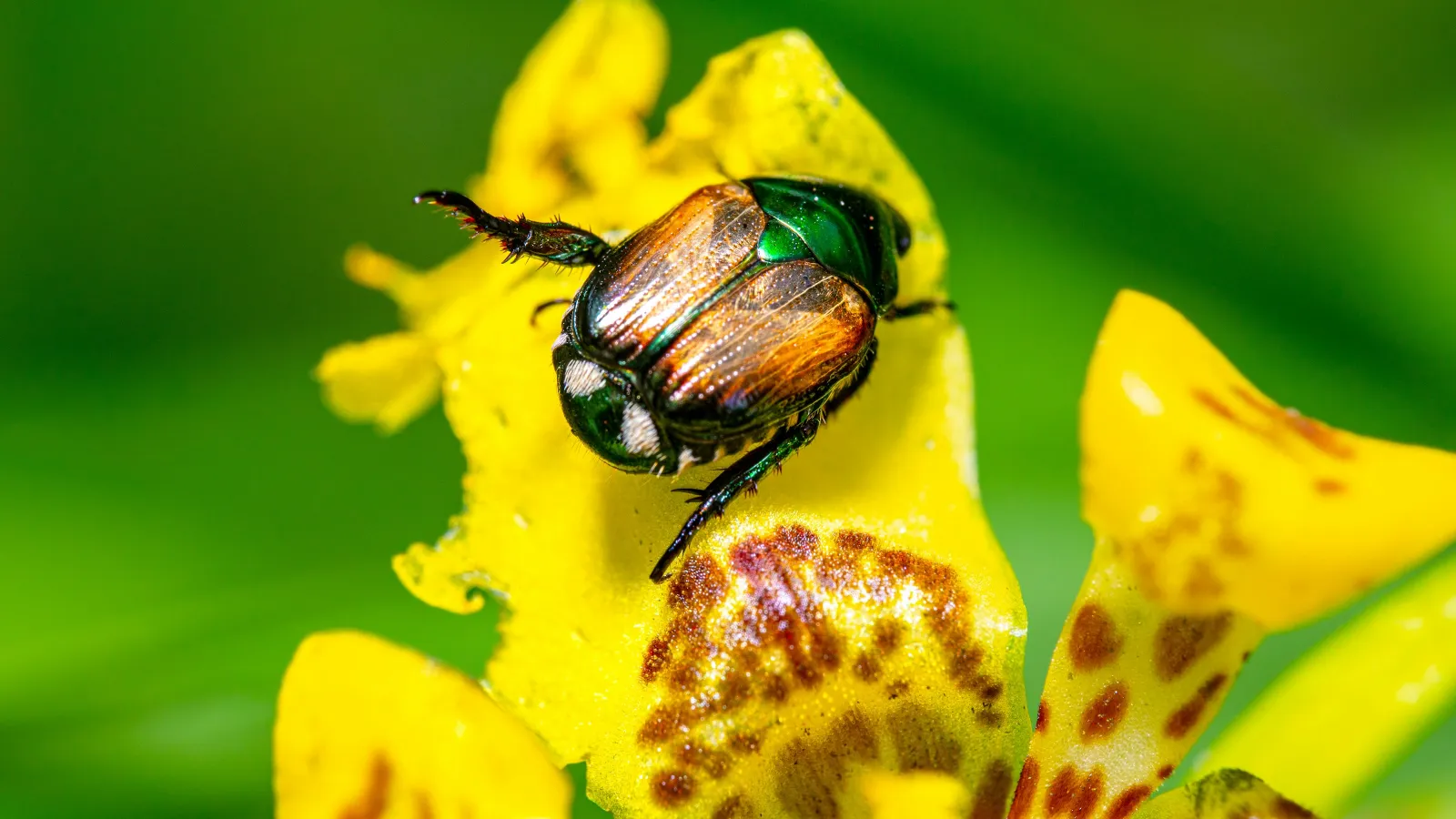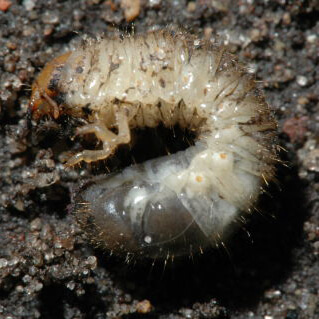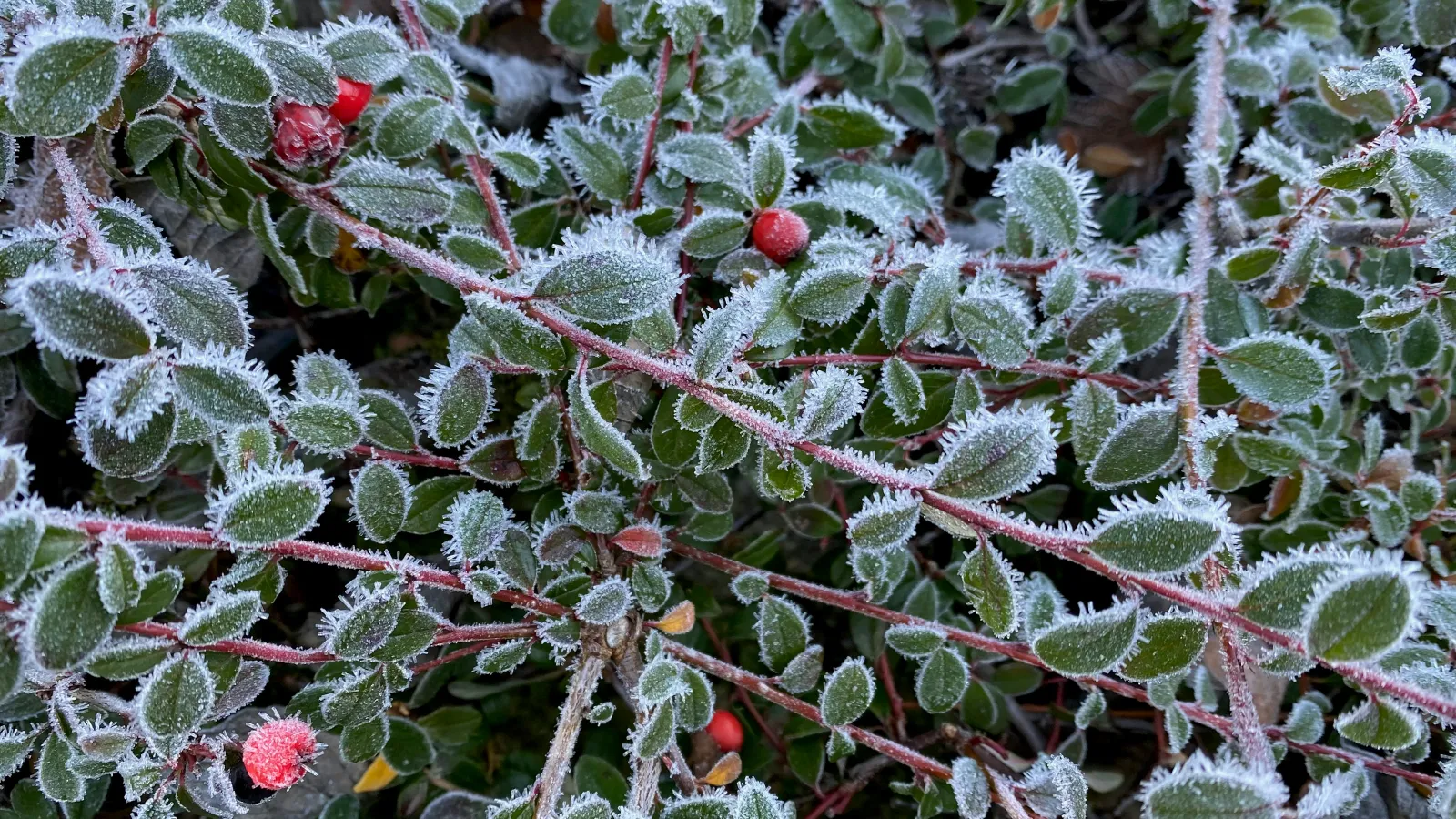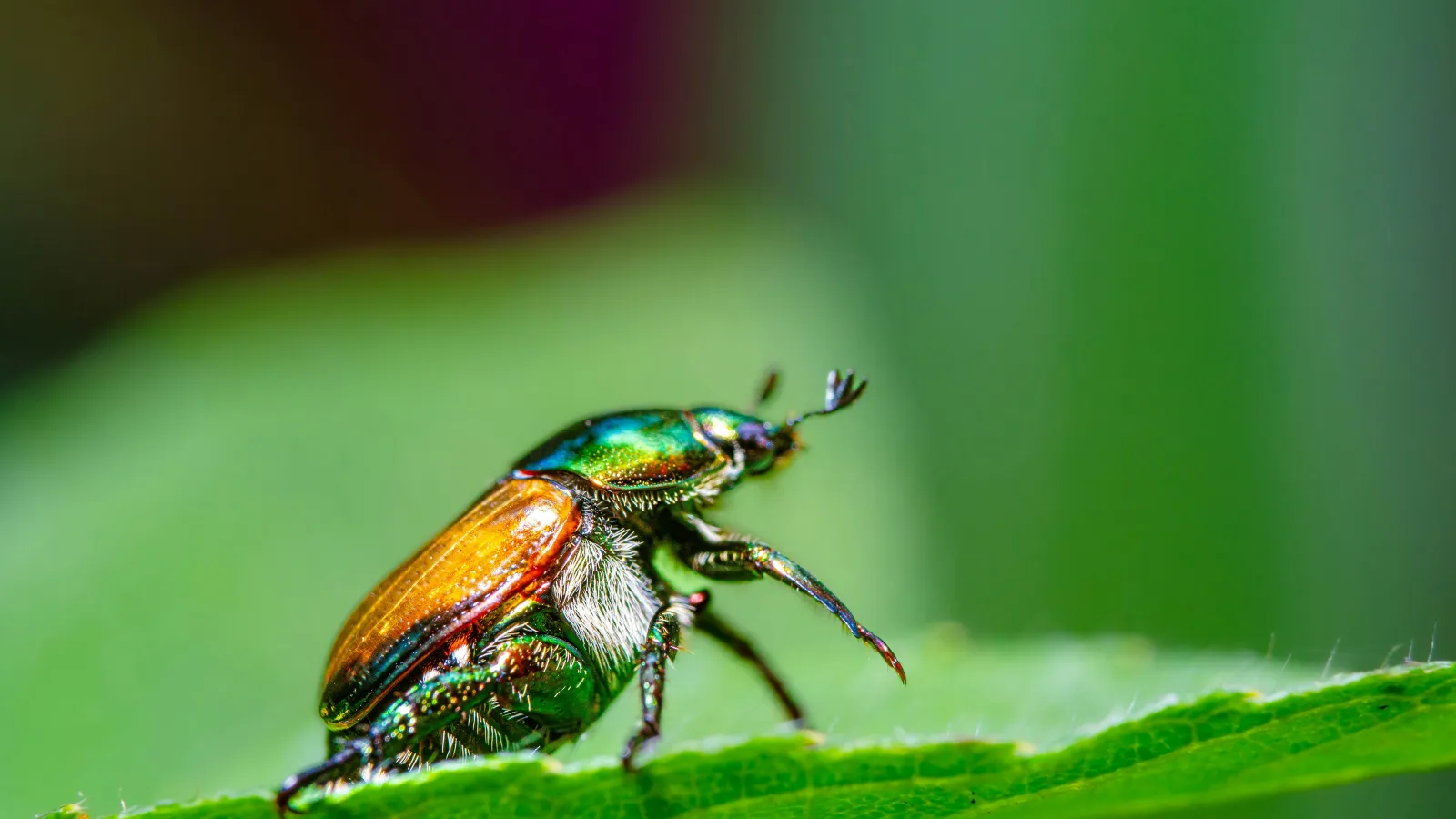
Are Japanese Beetles Harmful?
Are Japanese beetles harmful? If you're a human, no. If you're one of more than 300 species of plants, yes, they can be. The Japanese beetle is one of the most devastating pests of landscape plants in the southeast.
The Japanese beetle (Popillia japonica Newman) is destructive to shrubs and trees in the beetle state we commonly know. They are destructive to lawns as beetle grubs. They were first found in the US in 1916, after being accidentally introduced into New Jersey. Until that time, this insect was known to occur only in Japan where it is not a major pest.
Japanese beetles usually feed in small groups. They lay eggs in the soil in June, which develop into tiny white grubs. The grubs will remain underground until they emerge as adults the following June. Though their adult life is short, only about 40 days, they can cause a lot of damage.
Identification
Adults
- About 1/2 inch long
- Metallic green head and thorax (the area behind the head), copper-colored backs, tan wings, and small white hairs lining each side of the abdomen
Larva (White Grubs)
- 1/8 inch up to about one inch long
- C-shaped, white to cream-colored grubs with a distinct tan-colored head
- Legs are easy to see

Damage
While Japanese beetles can wreak havoc on plants, you won't find one that will bite a human. So while we're safe, our grass and plants are not.
Damage from Grubs
Grubs chew on grass roots, causing the turf to turn brown and die. This is because their chewing reduces the ability for the grass to take in water and nutrients to remain healthy. Grub-damaged turf pulls up easily from the soil, like a loose carpet.
Damage from Adults

Adult Japanese beetles feed on more than 300 plant species, including but not limited to roses, hibiscus, crape myrtles and cherry trees. The adults skeletonize leaves by feeding on tissue between the veins leaving a lace-like appearance. Damaged leaves will brown and may fall off.
Thankfully, their damage is usually only superficial, leaving no long term damage to the plants. Healthy, mature trees and shrubs can tolerate small Japanese beetle infestations, though the blossoms of flowering plants, like roses, are often ruined.
Control & Prevention
Look for beetles in your yard and garden starting in June. Japanese beetles only feed for 6-8 weeks; but once the population is high, they are more difficult to control. Early management is most effective to curtail their damage. Interestingly enough, damaged leaves attract more beetles, so minimizing beetles on plants should mean fewer beetles will be attracted to them. Most feeding is finished by mid to late August.
Tips for Control
- Manual removal of the beetles may provide adequate protection for small plantings and when the number of beetles are low. Simply shaking the plant will often knock loose the beetle from the plant.
- Covering a plant with a cheesecloth or something similar can also keep the Japanese beetles at bay.
- Japanese beetle traps can be helpful in controlling large numbers of insects, but they also might attract more beetles. Be sure to place traps far away from target plants.
- Choose plants that Japanese beetles are not attracted to. For a list of plants most and least often damaged by Japanese beetles, click here.
- Getting rid of grubs in the late spring and fall will prevent them from developing into adults and damaging your plants in the future.
Chemical Control
Healthy grass and plants are less susceptible to Japanese beetle and grub damage, so ongoing professional care is vital. Our Lawn Care program provides your lawn with the nutrients it needs to thrive, thus diminishing the likelihood of grub damage. If chemical control of adult beetles is necessary, our Tree & Shrub treatments can help prevent Japanese beetles from attacking your plants and eliminate these pesky insects if they are present in high numbers. As a professional, we know the best products to apply, when and how often to protect your landscape from Japanese beetles.
If you have any issues with Japanese beetles in your lawn and landscape, Turf Masters can help. Contact us today for your free evaluation and estimate.
Header Image Photo Credit: Jungle Dragon. Grub: UMN

